Teacher whose face ‘sent shivers’ down pupils’ spines finds cure in AI
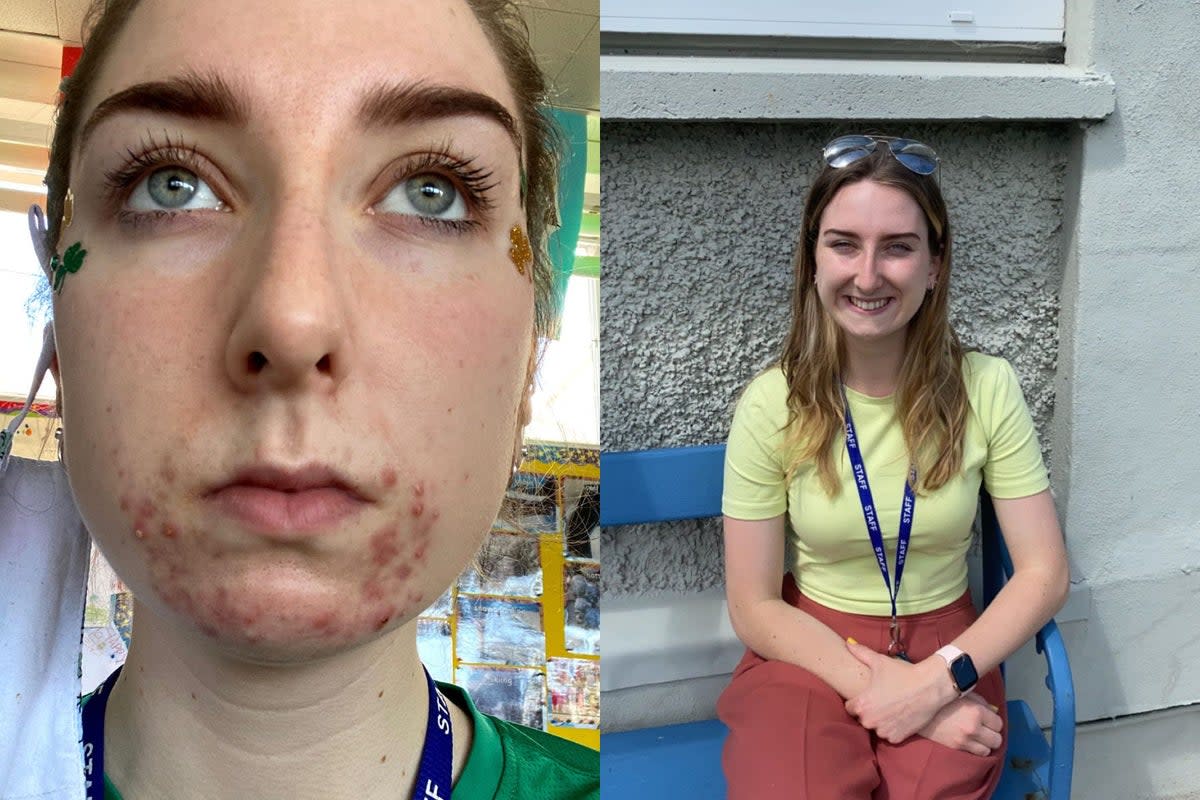
A primary school teacher with a “beard of spots” aggravated by mask-wearing during the Covid pandemic, whose pupils said her face sent “a shiver” down their spines, has finally found a solution for her skin using data and artificial intelligence (AI).
Kate Prendergast, 26, who lives in Dublin, Ireland, first started noticing spots around her chin when she was 17 years old.
She was prescribed “tablets here and there” by her GP, but the acne “would never really go away completely”, and so she used makeup to cover any blemishes.
Kate continued to battle with her skin over the following years, desperately trying to find a solution, but when face masks became mandatory during the pandemic, Kate said her skin was “the worst ever”, describing it as “a disaster”.
Her pupils, aged four and five, even said her face “looked a bit scary”, but after being recommended NOIE, which offers data-backed and dermatologically tested personalised solutions for people with skin conditions, Kate has found a formula to treat her acne and said her skin looks “lovely”.
“One day, I took down my mask for something (in class),” Kate said.
“I said, ‘Don’t mind my face, boys and girls, I’m putting cream on it there as the mask is irritating it,’ and one little girl said, ‘Oh my God. Sometimes when I see scary things, I get a shiver down my spine, and I just got a shiver down my spine’.
“I just can’t believe that my skin was so bad at one stage.
“It just feels great to be able to look back and say, ‘look how far I’ve come’.”
When Kate first noticed spots appearing on her face, she said she would look in the mirror and think, “Oh my God, my face is horrible”.
She went to her GP and was prescribed steroids and several antibiotics in her teenage years but her acne “just didn’t get better at all”.
Over the following months and years, Kate tried “so many other things and nothing was working”, and she said she did not know what to do.
When masks became mandatory due to Covid, Kate said her acne became “cystic” around her chin and jawline area, and it looked like she had a “beard of spots”.
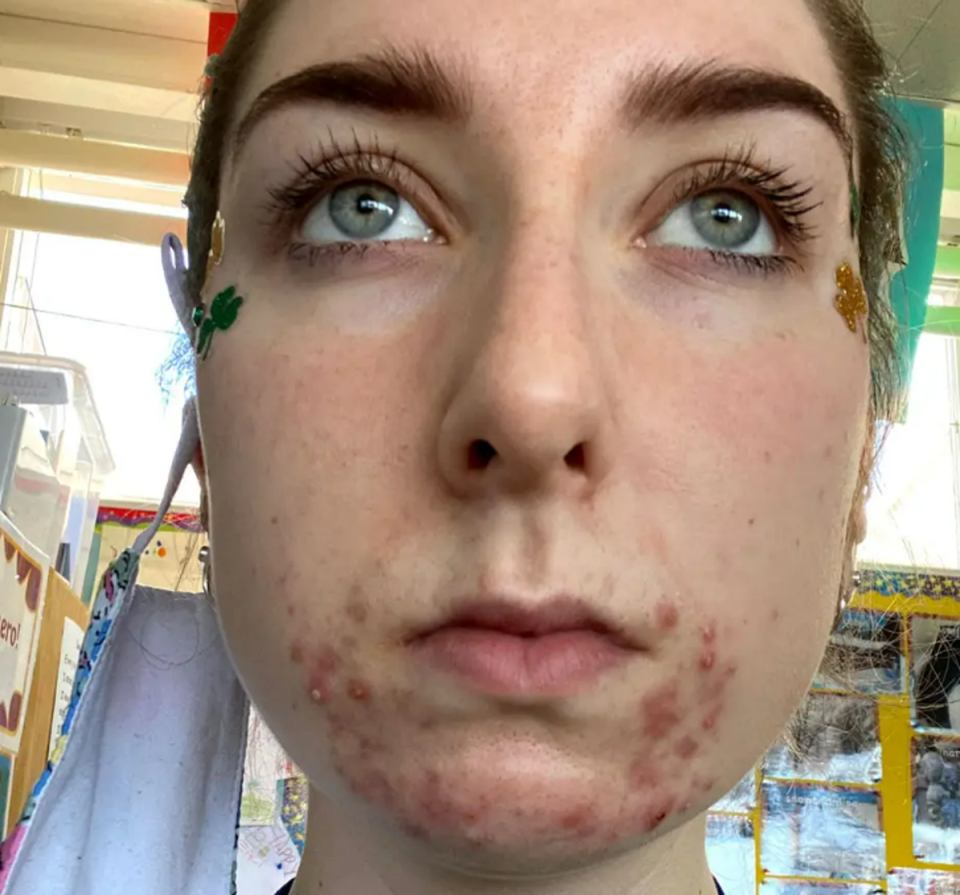
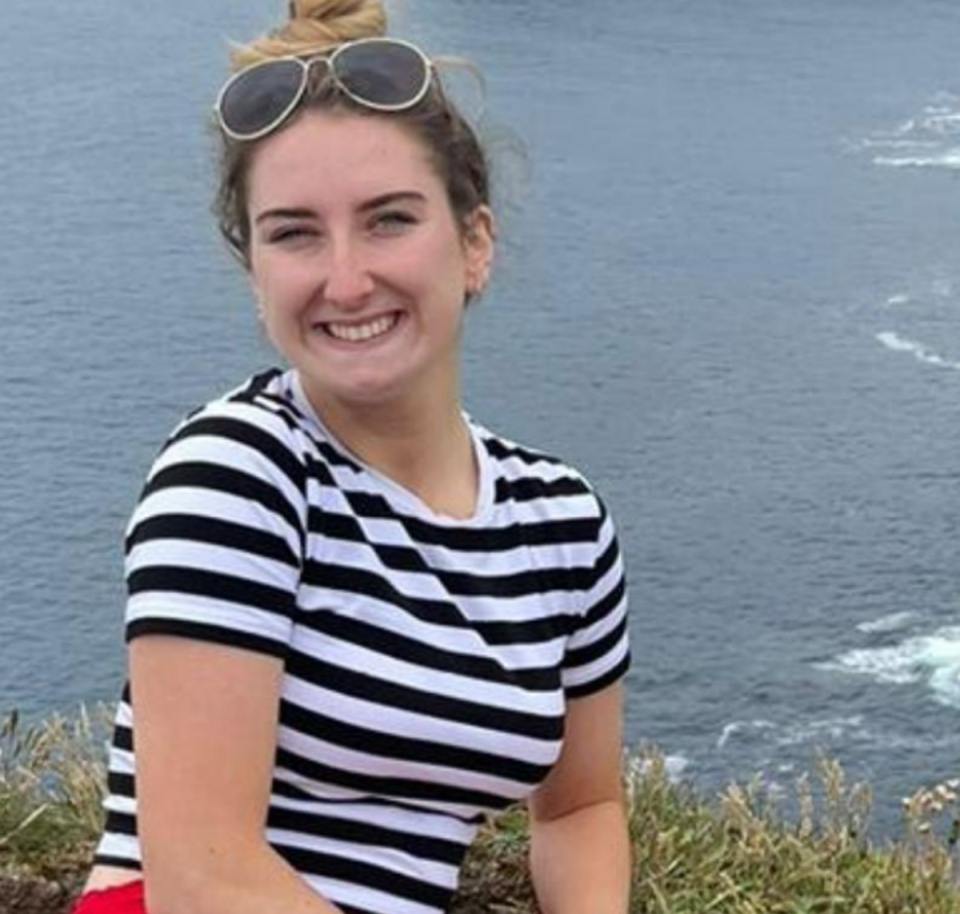
She said wearing face masks drove her skin mad and her acne was termed “mascne”.
“When Covid hit and we had to wear masks in work, it just drove it absolutely mad, the mask really irritated my skin,” Kate said.
“It got really bad, to the point where the mask was kind of the cause and solution because I didn’t really want anyone to see my face, and I remember even the children saying to me in school that my face looked a bit scary.”
Kate said her acne was “such a nuisance” and it made her feel “really self-conscious”, adding: “It does affect your confidence and self-esteem.”
While she was glad the face masks covered her acne, it only made her spots worse and she was constantly worried about how her skin looked.
“At break time in the staff room, we’d have a little pod of people we’d have lunch with and, every day, I was so conscious about it,” she said.
“When I took off my mask, I’d say, ‘Don’t mind my face. I’m putting cream on it now, hopefully this works,’ or, ‘I’m on antibiotics’.
“It was literally the first thing I’d say because I knew everybody else would be thinking it.”
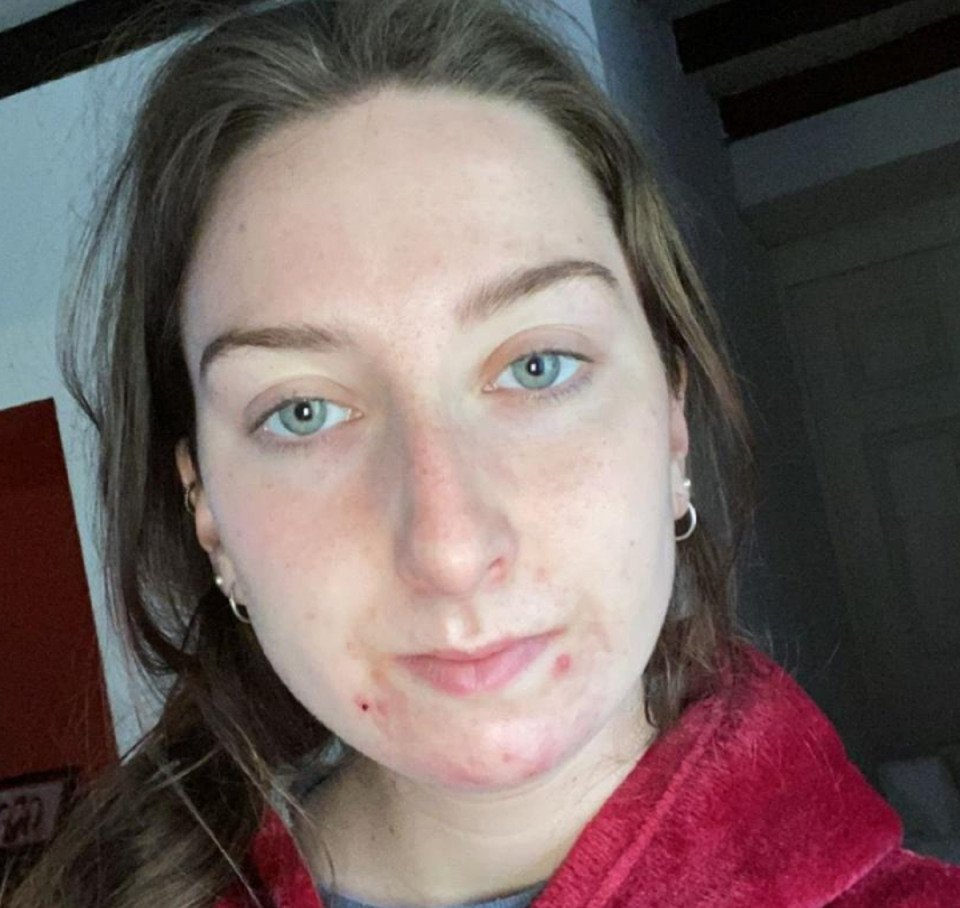
Since the age of 17, Kate said she tried everything, including creams, prescription medications, and skincare products, but nothing seemed to work.
Kate said her friends and family were supportive and would tell her, “it’s not that bad”, but she felt she was constantly battling with her skin.
“You’re just putting so many products on your face, trying to find a solution, and you think, is this making it worse? Or is it making it better?” she said.
“Then sometimes you’ll be like, OK, maybe it has to get worse before it gets better.”
She said she played mind games with herself and, at one point, Kate thought her skin would never be clear again.
“I’d just think, ‘Oh my God, this is just a disaster,'” she said.
When Kate’s skin was at its worst, her GP recommended she try Roaccutane – a prescription medicine used to treat severe acne.
However, due to the potentially serious side effects from taking the drug, Kate said “something was telling (her) to try and find something else”.
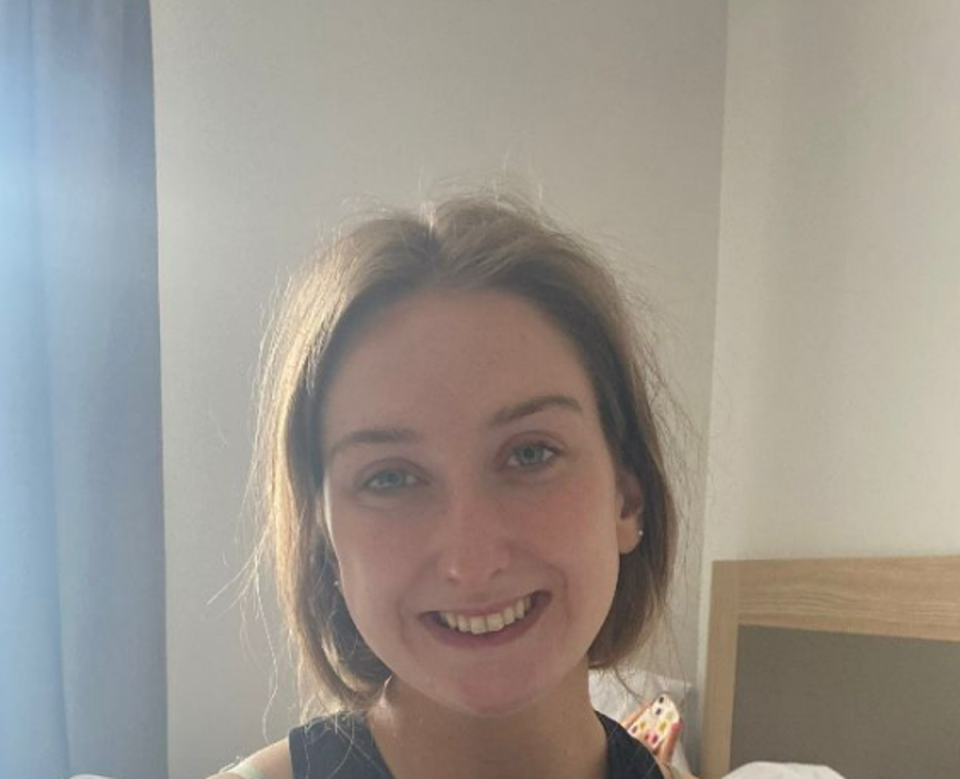
One day, while talking about her skin at work, a colleague recommended NOIE – a Danish start-up which develops personalised skincare for people with skin conditions based on their unique data and biomarkers.
More than three years after launching their AI-driven model, NOIE has collected data from 80,000 people with different skin types and conditions, enabling the provision of more effective recommendations for each individual.
Kate said she completed a questionnaire online and was recommended a solution in the form of a cream, tailored specifically to treat her skin concerns.
She received the cream and, after 30 days, noticed an improvement in her skin – she has continued to reorder the formula ever since.
“I was like, finally, we have lift-off,” she said.
Kate was later prescribed a new contraceptive pill, and she believes the combination of using the NOIE cream and those tablets have helped to clear her skin.
She has regained her confidence and thinks her skin is “nice completely without makeup”, which is something she never thought she would say.
While she still gets blemishes every now and then, Kate is “grateful” for how her skin looks and, if needed, she can change or adapt her NOIE solution.
She would advise anyone else who is struggling with their skin to “be patient” and to try NOIE as she feels “there is nothing to lose”.
“I didn’t know if it would ever get better, but thankfully, it did in the end,” she said.
“Just be patient, everything works out in the end, and there is a solution out there.”
To find out more about NOIE, visit: noie.com.

